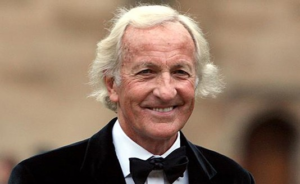Leonard C. Goodman
The most important stories of the year for those who care about a free press involve the arrest of Julian Assange from the Ecuadorian embassy at the request of the US government, and the rearrest of the whistleblower Chelsea Manning.
Assange is the founder of WikiLeaks, a website that publishes official documents exposing the crimes and lies of world leaders. Before publishing, WikiLeaks verifies that the evidence submitted is authentic. Of the millions of items published by WikiLeaks, not one has been shown to be fraudulent or untruthful.
Chelsea Manning is a former Army intelligence officer who leaked hundreds of thousands of classified documents to WikiLeaks that exposed war crimes and official lies relating to the wars in Iraq and Afghanistan. Manning confessed to her crimes and was sentenced to 35 years of incarceration. But her sentence was commuted after seven years by President Barack Obama, who conceded that she had acted out of a sense of duty to expose wrongdoing.
For at least three decades, our national government has primarily served the interests of the 1 percent—the major donors to the Democratic and Republican parties. To carry on in such an undemocratic fashion in a country that still requires leaders to stand for election, our leaders need to lie with impunity, especially about matters of war. To get away with this, they classify as secret every official document that has the potential to embarrass them or enlighten the people.
Of course, Assange is not the first publisher to expose government crimes. What makes Assange such a threat, and so hated, is that he publishes official government documents in real time that are impossible to dispute or discredit.
To grasp the power of WikiLeaks, imagine it had existed in 2002 during the run-up to the Iraq War. At that time, the administration of George W. Bush was telling the nation that we faced a grave threat from Iraq and its president, Saddam Hussein, who we were told had reconstituted his nuclear weapons program and had amassed large, clandestine stockpiles of deadly VX, sarin, and mustard gas. The situation was said to be so dangerous that we couldn’t even wait a couple of months to allow a team of international weapons inspectors to finish their job. Then-National Security Adviser Condoleezza Rice warned that the smoking gun in Iraq may “be a mushroom cloud.”
Of course, our leaders produced no actual evidence to support their claims about Hussein and Iraq. All of the evidence was classified. The American people—who were called upon to pay for the war in blood and treasure—were not entitled to see any of the actual evidence for war. The mainstream press, including the New York Times and NPR, repeated the evidence-free assertions by our public officials as if they were proven fact. The American people were given no choice but to fall in line.
Years later, after it was too late to do any good, the actual intelligence reports were leaked. They showed that nearly everything we were told by the Bush administration about its evidence for war was a lie. The wild claims about chemical weapons were all based on the stories of a known fabricator named Curveball, and on tales invented under torture by a CIA prisoner named al-Libi. The dire warnings about a “mushroom cloud” were based on a forged document that pretended to show Hussein purchasing uranium from Africa, together with a bogus report that ordinary aluminum tubes purchased by Iraq might be used to enrich uranium.
Had WikiLeaks existed in 2002, a patriotic officer like Manning might have leaked the official intelligence reports exposing the lies our leaders were telling to get us to go along with the war. Hundreds of thousands of lives could have been saved, and the trillions of dollars spent on the Iraq War could have been used instead to give every American free health care, free college, and a Green New Deal.
Secretary of State Mike Pompeo has been publicly threatening Assange since Pompeo was CIA chief. But there is concern among Assange’s foes that a fair-minded judge might recognize that Assange’s actions were no different than the actions of the New York Times and the Guardian, which also published the leaked material from Manning. If these establishment papers were protected by the First Amendment, then why aren’t Assange and WikiLeaks?
This explains why the US government has put Manning back in jail. They need her to testify that Assange helped her steal classified documents, something the government almost certainly knows is untrue. The Obama Justice Department spent years trying to find evidence to justify a claim that Assange did more than act as a publisher but found nothing to justify that accusation. Besides, if the Trump Justice Department had any evidence that Assange participated in the theft of classified documents, it wouldn’t need to force Manning to say it.
This holiday season, Assange is locked away in the Belmarsh high-security prison in London, awaiting extradition to the US, while Manning is back in jail in Virginia. Our government believes that any person with the courage and integrity to expose the misuse of power must be eliminated. I am sending these words of encouragement to Assange and Manning. May they continue to find the strength to resist a ruthless foe and help save our democracy.
(Leonard C. Goodman is a Chicago criminal defense attorney and co-owner of the newly independent Reader.)




